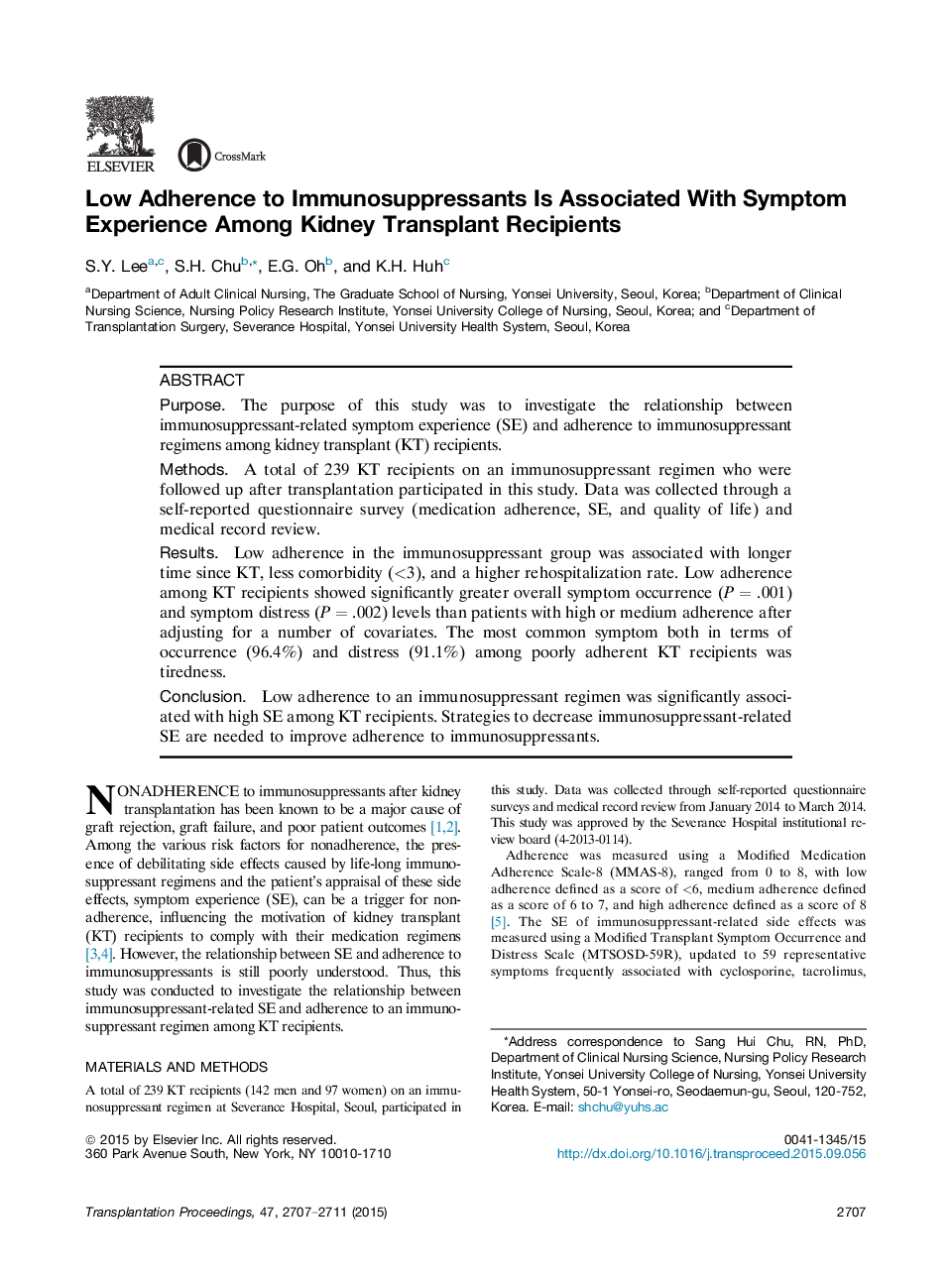| Article ID | Journal | Published Year | Pages | File Type |
|---|---|---|---|---|
| 4255916 | Transplantation Proceedings | 2015 | 5 Pages |
•Immunosuppressant-related SE is common in KT recipients.•Higher SE was associated with low adherence to immunosuppressants.•The most common symptom both in terms of occurrence and distress among poorly adherent KT recipients was tiredness.•Three years or longer time since transplantation was associated with low adherence among KT recipients.
PurposeThe purpose of this study was to investigate the relationship between immunosuppressant-related symptom experience (SE) and adherence to immunosuppressant regimens among kidney transplant (KT) recipients.MethodsA total of 239 KT recipients on an immunosuppressant regimen who were followed up after transplantation participated in this study. Data was collected through a self-reported questionnaire survey (medication adherence, SE, and quality of life) and medical record review.ResultsLow adherence in the immunosuppressant group was associated with longer time since KT, less comorbidity (<3), and a higher rehospitalization rate. Low adherence among KT recipients showed significantly greater overall symptom occurrence (P = .001) and symptom distress (P = .002) levels than patients with high or medium adherence after adjusting for a number of covariates. The most common symptom both in terms of occurrence (96.4%) and distress (91.1%) among poorly adherent KT recipients was tiredness.ConclusionLow adherence to an immunosuppressant regimen was significantly associated with high SE among KT recipients. Strategies to decrease immunosuppressant-related SE are needed to improve adherence to immunosuppressants.
